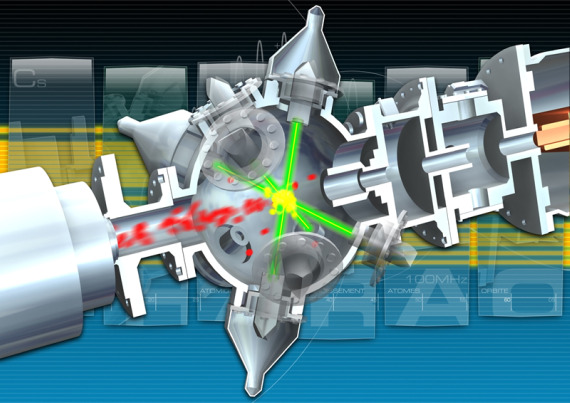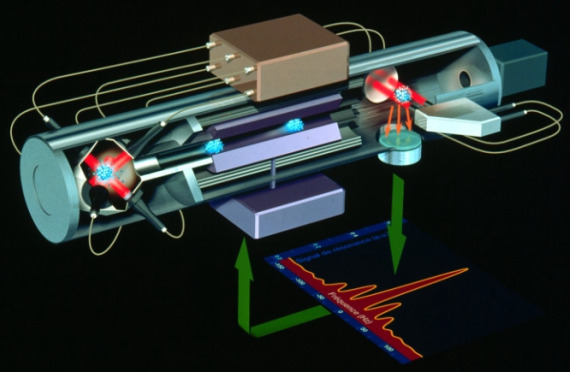
Apparently terrestrial atomic clocks aren’t accurate enough for some people, so a French team is taking the concept of an atomic clock into space. Keep reading to see just how accurate it is. Atomic clocks are extremely important in today’s world. Telecommunications, the Internet, all major media sources, and an incredible list of important things we take for granted rely of timing and scheduling accuracy. The more accurate the better really – and the modern world literally could not operate as it does without such precision timing. Plus, there is a whole realm of scientific testing that requires precision timing such as this.
The modern media industry became what it is today with the advent of quartz timing. An American invention, the devices used to take up an entire room for a single quartz clock (once clocks started being make – though not always American makers of course). They used to look like giant computers of yore. Atomic clocks are even more accurate (by leaps and bounds), and there are currently about 6 of them in the world assisting with our need for global synchronization. Still, the way an atomic clock works is effected (ever so slightly) by gravity. So a French team (with the collaboration of many parties) decided it was necessary to take the atomic clock to the logical next step – and put one in space that will be more accurate that previous ones the we put in space.

This new type of atomic clock uses something called cold-atoms. This technology, combined with a micro-gravity environment will make for atomic clocks that are far more accurate than the ones on Earth or that previously were aboard moving satellites. It is part of a project called ACES (atomic clock exploration in space) and the clock is self is called the PHARAO (Projet d’Horloge Atomique par Refroidissement d’Atomes en Orbit). PHARAO will be placed aboard the ISS (international space station). Not only will it allow for hyper accurate synchronization with other atomic clocks, but it will also allow scientists to experiment and test some aspects of Einstein’s relativity theory.
Just how accurate is the PHARAO atomic clock? Get this, the clock will deviate by one full second each 300 million years! There is a ton of science here that I either don’t understand, or am not willing to go into. Suffice it to say that true mastery of time may allow humans to reach “the next step” scientifically. The eye in the sky now will know EXACTLY where you have been and what time you were there.
True nerd and want to learn more? Check out these two PDFs below.
